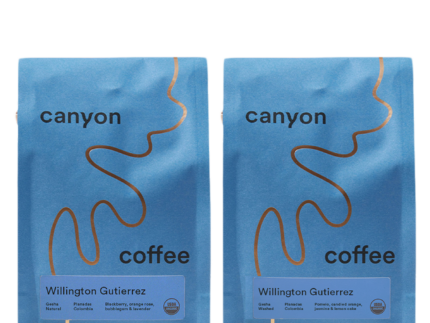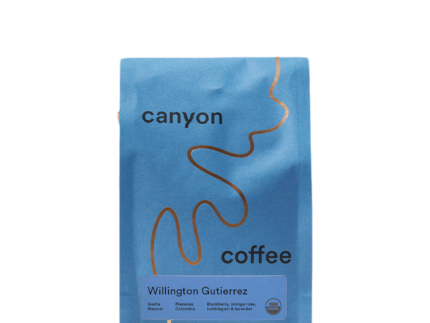Gedeb
Available year round, from the Gedeb region in Ethiopia. We love coffees from this area for their fragrant, floral aroma, sweet, balanced taste, and smooth lime-like acidity.
About Gedeb
Origin: Ethiopia
Producer: SNAP Coffee
Region: Gedeb
Process: Washed
Certification: Organic
We Taste: Persimmon, Lime and Bergamot
Our Ground Coffee
Over the years, we’ve honed in on a tried-and-true medium-coarse grind setting that works well for a range of home-brewing methods, including pour overs, coffee machines and french press. With this grind setting, you have the power to adjust the flavor of your coffee through your coffee to water ratio and water temperature. Feel free to email us with questions or for brewing help!
EXPERIENCE
The cup is deliciously sweet and round, with a smooth lime-like acidity. The broadest note we picked up on hearkened to fuyu persimmons — Ally’s favorite fruit. When ripe, we love persimmons for their developed autumnal sweetness, which is almost honey-like. They seem to carry a trace of cinnamon.
ABOUT THE PRODUCERS
Coffees from the Gedeb region have been gaining a lot of attention for their quality and flavor notes over the last few years, thanks in large part to the work of SNAP Coffee Producers. SNAP has worked to improve local coffee washing stations through their meticulous attention to detail. The coffees we source through SNAP are all grown on certified organic farms at particularly high elevations (over 2000 meters above sea level).
SNAP is a family-owned business. It was founded in 2008 by Negusse Debela, who first made a name for himself as one of the largest importers of computer parts and components in Ethiopia. A relative newcomer to the coffee industry, Negusse had a coffee “Aha!” moment while visiting family in Minnesota, where he had an Ethiopian coffee pour over that gave him a new appreciation for the coffee from his home country. Inspired by this experience, he returned to Ethiopia with a goal of becoming one of the highest quality exporters of coffee in the country.
Alongside a growing team, he opened coffee processing sites around Nensebo, Yirgacheffe, and Guj, bought land to build their own processing sites, and in 2019, they completed their own dry mill. In Ethiopia, smallholder farmers often grow cherries in their own fields, then bring their harvests to their community washing station. For this reason, the equipment, skill and attention to detail of the washing stations are very important in determining the quality of the cup.
PROCESSING
The coffee is fermented underwater for approximately 24-48 hours. After fermentation the coffee is washed, and then soaked in clear water for about 2 hours. After the short soaking period, the coffee is dried on raised beds for approximately 10-14 days.










